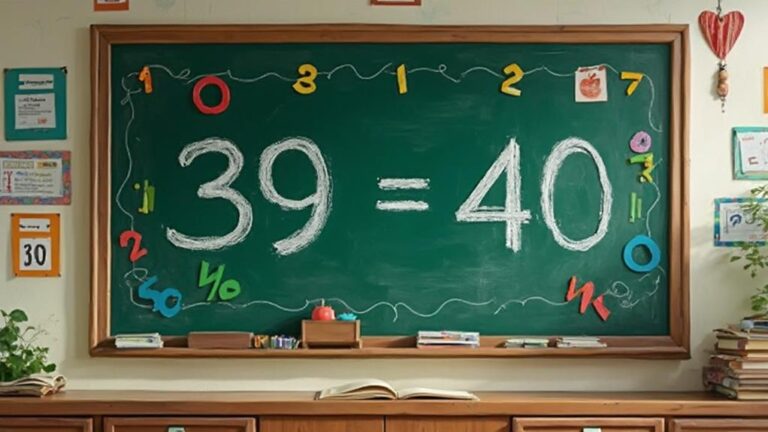When you encounter the word "knackered," you might wonder about its correct spelling and pronunciation. It starts with a "K," followed by "n-a-c-k," forming "knack," and ends with "e-r-e-d," making "ered." Pronounced as "NACK-uhd" in British English, this informal term captures a sense of deep exhaustion. But did you know there's more to its story, including historical origins and common usage? Stick around to uncover the fascinating details behind this unique word and how it fits into everyday language.
Definition of Knackered
Knackered, a term rooted in British slang, vividly conveys a state of extreme tiredness or exhaustion. When you're feeling utterly drained, "knackered" is the word that perfectly captures that level of fatigue. It's primarily used in informal contexts, making it a staple in casual conversations among British speakers.
Unlike American English, where you'd more likely hear "exhausted" or "worn out," "knackered" embodies a uniquely British take on being tired.
In its most common usage, "knackered" describes how you feel after a particularly grueling day—think "absolutely knackered after a long day" or "too knackered to join for dinner." However, it's versatile enough to apply to objects as well, indicating that something is worn out or no longer functional.
The origin of "knackered" traces back to the past participle of "knacker," a term historically used to describe someone who kills or tires out, with its first known usage dating back to 1971.
This rich history gives the word a nuanced context that's deeply embedded in British culture. So, next time you're utterly drained, don't hesitate to say you're knackered—it's a perfect fit.
Historical Origins
Understanding the rich history behind "knackered" provides deeper insight into its vivid portrayal of exhaustion. The term "knackered" originates from the past participle of "knacker," a word that historically referred to someone who kills or tires out animals. This connection to extreme fatigue isn't coincidental; knackered has long been associated with states of being worn out or broken.
Its first known usage in 1971 marks a significant shift in meaning, from the notion of killing to that of experiencing intense exhaustion. However, the roots of the term extend much further back, deeply embedded in British slang since at least the 1880s. This period reflects an era where informal language captured the essence of daily life and common experiences.
The evolution of "knackered" underscores its application to both people and objects, emphasizing universal experiences of being worn out. The term's historical connection to older words for harness-makers or buyers of worn-out animals further highlights its enduring link to weariness and exhaustion.
Understanding this rich background fosters a sense of belonging among those who use and identify with this evocative piece of British slang.
Pronunciation Guide
When it comes to pronouncing "knackered," clarity is key. This term, often used in informal British contexts to describe extreme tiredness or exhaustion, is quite straightforward once you get the hang of it. The British pronunciation is represented by the IPA notation /ˈnæk.ɐd/, while the American version is /ˈnæk.ɐrd/.
Pay close attention to the first syllable, "knack," which is stressed. This means you should emphasize the "nack" part when you say it. The "k" in "knackered" is pronounced clearly, unlike in some English words where it might be silent. The ending, "ed," sounds like /ɐd/ in UK pronunciation, almost blending into the preceding sounds.
To break it down, you'd say "NACK-uhd" in British English. This pronunciation guide guarantees you capture the essence of the word's informal, conversational nature.
Mastering this will help you fit right into discussions about tiredness and exhaustion in British settings. So, next time you're feeling utterly worn out, you'll not only know how to spell "knackered" but also how to say it like a native.
Common Usage
Now that you've mastered the pronunciation of "knackered," let's explore its common usage.
"Knackered" is a British slang term that vividly conveys a state of being extremely tired or exhausted. You'll often hear it in informal conversations, reflecting its relaxed, everyday nature. Common phrases like "feeling knackered" or "absolutely knackered" are frequently used to emphasize one's fatigue, whether after a grueling workday, an intense workout, or the relentless demands of parenting.
In British English, "knackered" captures the essence of being completely worn out. Its usage extends beyond describing people; it can also refer to inanimate objects that are no longer functioning properly or appear very old and used. For instance, you might hear someone lament about a "knackered old bicycle" that's seen better days.
While "knackered" is mainly British and informal, its versatility in different contexts—from sports to daily life—makes it a go-to term for expressing exhaustion.
Embracing this slang not only enriches your vocabulary but also connects you with the cultural fabric of British English, fostering a sense of belonging in its linguistic community.
Synonyms and Antonyms
To expand your vocabulary and articulate different shades of fatigue, it's essential to explore the synonyms and antonyms of "knackered." Synonyms like "exhausted," "worn out," "drained," "fatigued," and "tired out" all convey similar levels of extreme tiredness, each bringing a slightly different nuance to the table.
While "knackered" is often used in informal British English, understanding its synonyms can enhance your descriptive language, allowing you to accurately express various forms of exhaustion.
Consider these synonyms:
- Exhausted: Emphasizes complete depletion of energy.
- Worn out: Often suggests physical wear and tear.
- Drained: Highlights emotional or mental fatigue.
- Fatigued: A more clinical or formal term for tiredness.
Antonyms for "knackered"—words that signify high energy or alertness—can also enrich your vocabulary. These include "energized," "refreshed," "invigorated," and "revitalized."
Each antonym serves to contrast the state of being knackered, providing a fuller spectrum of descriptive options.
Example Sentences
Crafting sentences with the word "knackered" not only helps you grasp its meaning but also enhances your ability to use it effectively in various contexts. Here are some example sentences to illustrate its usage:
Imagine you've just completed a marathon. You might say, "After running the marathon, I was absolutely knackered and could barely move." This example underscores the intense exhaustion one feels after strenuous physical activities.
Consider a day spent with energetic kids. You could note, "The kids were knackered after a day full of outdoor activities and games." This sentence captures how tiring a day filled with constant motion can be.
When you're overworked, you might express, "He felt knackered from working late hours all week and needed a break." Here, "knackered" conveys the fatigue from continuous labor and the need for rest.
Traveling can also be exhausting. You might say, "After a long flight, she arrived at her destination feeling completely knackered." The example highlights the weariness from prolonged travel.
Additional Resources
To expand your knowledge of "knackered," consider utilizing vocabulary enhancement tools such as dictionaries and thesauruses, which provide definitions, synonyms, and antonyms.
Engaging with quizzes and articles on British slang can also reinforce your understanding.
Additionally, sharing your learnings on social media can connect you with communities interested in language and slang.
Vocabulary Enhancement Tools
Enhancing your vocabulary isn't just about learning new words; it's about using the right tools to integrate them effectively into your language repertoire. Vocabulary enhancement tools like Merriam-Webster's online dictionary are invaluable for mastering words like "knackered." They provide clear definitions, synonyms, and example sentences, making it easier for you to understand and use British slang and other terms accurately.
To make the most of these tools, consider the following resources:
- Merriam-Webster's online dictionary: Offers detailed definitions, synonyms, and examples to deepen your understanding of words like "knackered."
- Word of the Day subscription: Helps you discover new vocabulary daily, including British slang terms.
- Language learning quizzes and games: Engaging activities that reinforce correct usage and understanding of informal expressions.
- Thesaurus entries: Useful for finding related terms and expanding your vocabulary by exploring synonyms near "knackered."
Engaging with these tools can transform your vocabulary from basic to advanced.
Articles discussing British slang and regional variations can also provide cultural context, enriching your comprehension and usage of terms like "knackered." By leveraging these resources, you'll not only expand your language skills but also feel more connected to a broader linguistic community.
Social Media Sharing
Social media platforms like Twitter and Instagram often buzz with the term "knackered," reflecting its widespread use among British English speakers. Sharing the definition of "knackered" on these platforms can be a great way to raise awareness of British slang and its cultural significance.
When you post about feeling "knackered," you're not just describing your fatigue; you're also connecting with a broader community that appreciates this rich vocabulary.
Engage your followers by sharing quizzes that test their understanding of "knackered" and other British slang. These interactive posts can be both educational and entertaining, helping to broaden everyone's vocabulary.
Encourage your friends to share their own experiences of feeling "knackered." This fosters a sense of belonging by opening up discussions about common fatigue-related experiences.
Using hashtags like #knackered, #BritishSlang, and #LanguageLearning can connect you with users who've similar interests. These hashtags make it easier to find and engage with content that resonates with your experiences and interests.
Frequently Asked Questions
How Do You Spell Knackered as in Tired?
You spell "knackered" K-N-A-C-K-E-R-E-D. It's common slang in British expressions, signifying tiredness symptoms from sleep deprivation. This informal vocabulary highlights cultural phrases, reflecting language evolution and regional dialects. It's a tired synonym with unique word origins.
What Does "Knackered" Mean in Slang?
Imagine you're dragging your feet through molasses—that's "knackered." It's British slang for extreme tiredness, reflecting cultural phrases and everyday exhaustion. This common slang has roots in historical terms for worn-out things, highlighting language evolution.
Is It Knackered or Nakered?
It's "knackered," not "nakered." The knackered pronunciation guide shows a hard "k." Origin of knackered term is British slang for exhausted. Common phrases include "I'm knackered." You'll see knackered in literature and pop culture.
Is Knackered a Rude Word?
Yes, "knackered" can be considered mildly rude due to its slang origins and historical context. Its cultural perception varies, especially among different age groups. Use synonyms like "exhausted" in formal settings to avoid potential offense.







